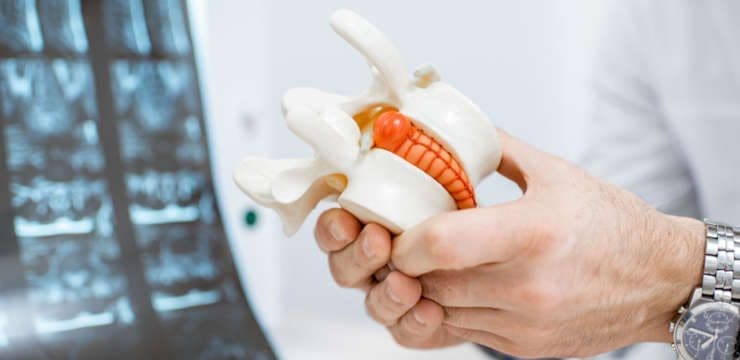Optimal joint health is vital to keeping the body moving. They allow us to function throughout the day and perform various tasks. When healthy joints…


Optimal joint health is vital to keeping the body moving. They allow us to function throughout the day and perform various tasks. When healthy joints…

Fibromyalgia is a condition that causes pain throughout the whole body. It causes sleep problems, fatigue, and mental/emotional distress. It affects around four million adults…

Most individuals don’t think about how they walk or whether they are walking with the correct posture. Knowing how to walk with the proper technique…

We see it on all types of athletes nowadays. They are wearing tape that looks like it’s for an injury. It is for injuries, but…

Posture exercises: It is easy to get into the bad habit of poor/improper posture, especially at work where an individual gets into a groove and…

Herniated discs, although common, can be challenging to treat depending on the size. Over 3mm is considered a large herniated disc. However, it can progressively…
Calf pain is common in individuals that are on their feet for long periods. This could be standing, walking, as part of a job or…

Chiropractic medicine is used as a standard musculoskeletal injury/strain treatment and for rehabilitation. Chiropractic helps with: Different types of back pain Headaches Neck pain Shoulder…

Chiropractic medicine specializes in the musculoskeletal system. It treats the whole body because if one area of the body is inflamed, swollen, out of place,…

Most if not all of us have probably used heat and/or ice on a sprain, strain, or sore area of the body. Having a pinched…

Managing rheumatoid arthritis is an ongoing balancing act. Despite following the rheumatologist’s lifestyle instructions, proper medication use, and a well-maintained RA plan, flare-ups can still…

The hamstring muscles are three muscles in the back of the thigh. The sciatic nerve goes through or around and down the legs into the…

Chiropractic treatment/care is a recommended pain relief option for musculoskeletal automobile, sports, personal – injuries, strains, sprains, pain, and rehabilitation. An initial chiropractic examination is…

Relaxing the low back muscles. The low back supports the weight of the upper body and provides mobility. The lumbar spine/low back is a complex…

High school football takes a toll on the body. The sport can cause all kinds of injuries that can range from mild – severe. Areas…

Individuals don’t like to read the warning signs of their spinal health, saying to themselves the pain will go away. Individuals will feel their back…

Optimal nervous system health is the key to maximum body function and overall health. Individuals don’t really think about their nervous system until symptoms from…